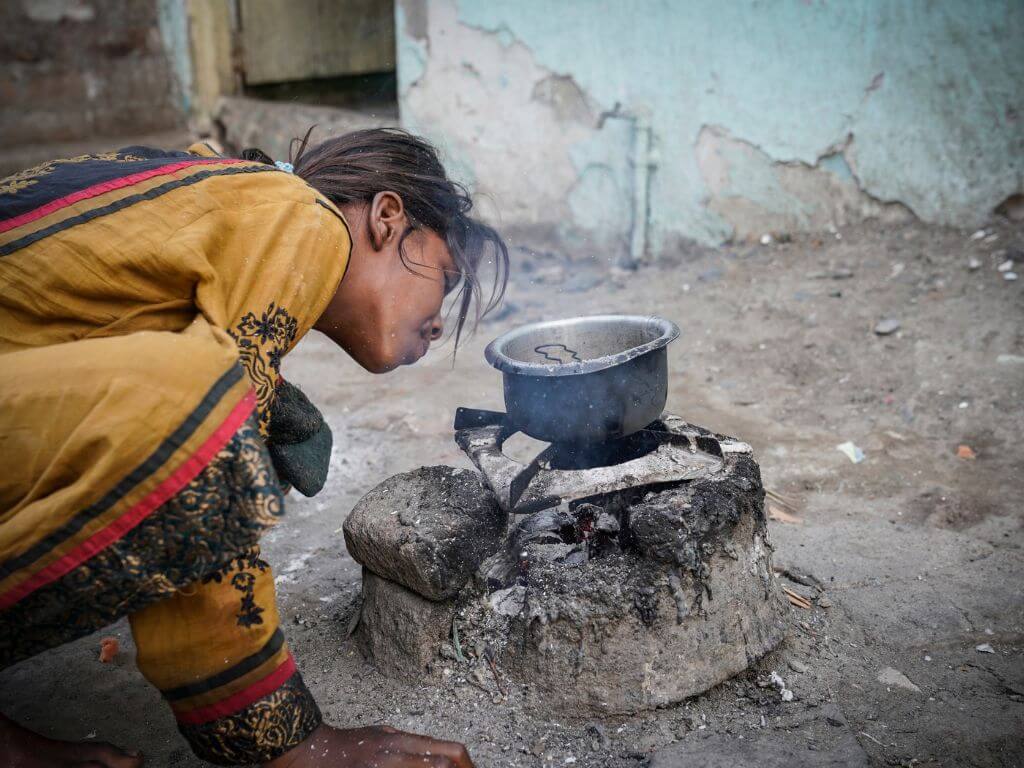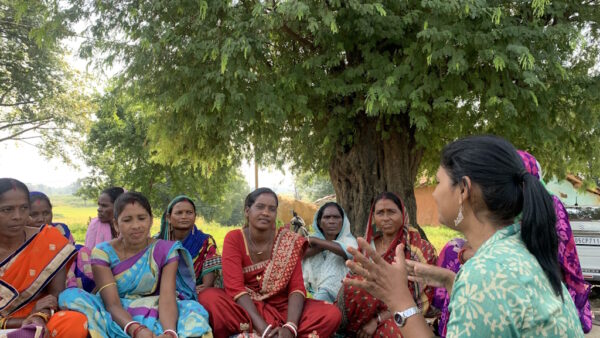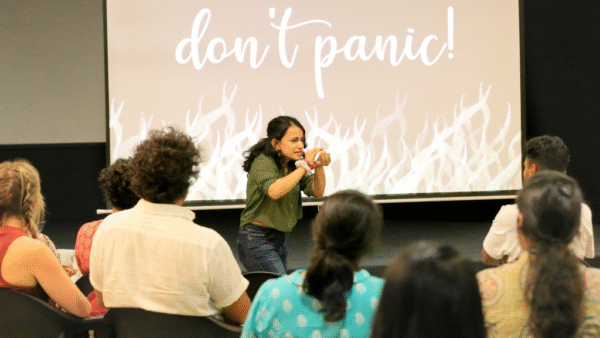In a small shanty in Delhi’s Kanchan Kunj area, lives the 45-year-old daily wage labourer and her husband hailing from Rae Bareli in Uttar Pradesh. They moved to Delhi nearly 20 years ago in search of a livelihood. The couple lives in the small 10×10 room with their three children and have been engaged in daily wage work. Ever since she can remember, she has been cooking on a chulha , spending hours in front of the stove, often gasping for breath as she inhales the smoke billowing from it. Her eyes burn while cooking and her children often experience bouts of cough as the smoke engulfs her shanty.
The Pradhan Mantri Ujjwala Yojana, popularly called the Ujjwala scheme, is one of the flagship schemes of the National Democratic Alliance (NDA) government, launched to provide women from deprived households access to clean cooking fuel, primarily through subsidised cylinders. The scheme attempted to push more households into using cleaner fuels like LPG and was positioned as the government’s commitment to empower the women electorate. Despite its wide coverage, however, several families like the one mentioned here continue to use biomass even today due to various barriers and access issues.
As polling continues in a long-drawn election this April-May in the world’s biggest democracy, the spotlight is on women who form a significant constituency consisting of nearly 470 million voters[2] and the recurring commitment of parties has been to provide access to cleaner cooking fuels to marginalised households in the form of LPG, piped gas or through solar-based technologies. Such commitments are important to meet India’s net-zero target by 2070.[3]
Biomass burning (solid fuels such as firewood, dry leaves, dung cakes in chulhas) releases substantial amounts of black carbon, a potent climate change agent that contributes to global warming and, subsequently, to climate change. Household cookstoves that use solid fuel are responsible for generating around 25 percent of total anthropogenic black carbon (BC) emissions.[4] Reducing the usage of unclean cooking fuels is an important aspect in mitigating the impact of climate change in India as it looks to meet its emission targets.
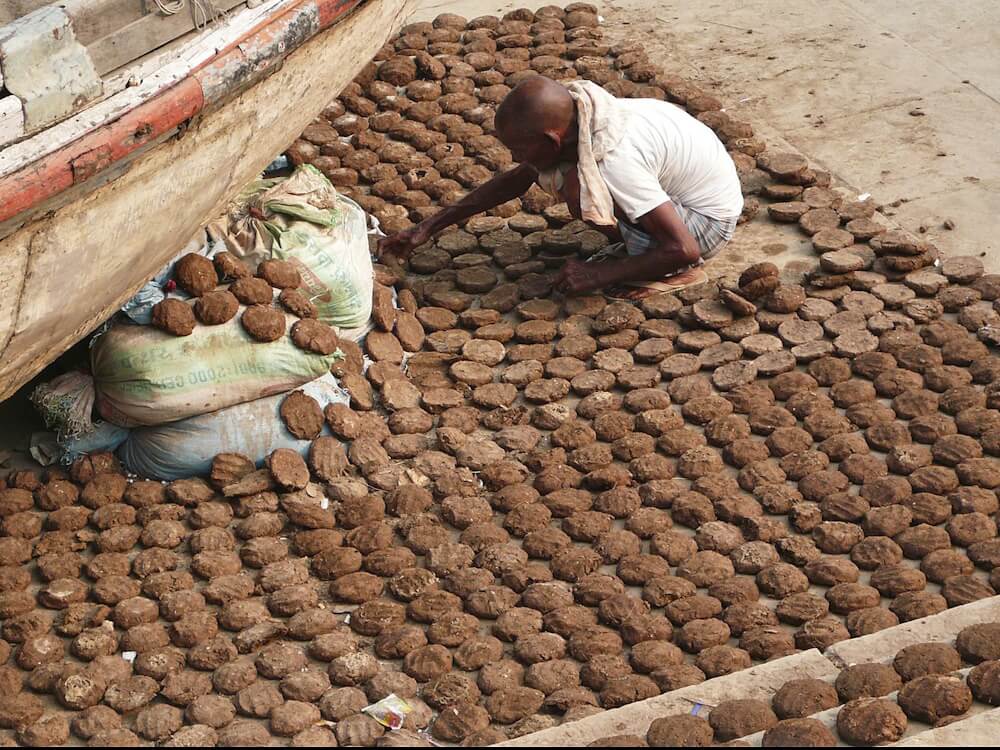
Photo: Creative Commons
One of the crucial steps towards this was the Ujjwala scheme, launched in 2016, to make clean cooking fuel such as LPG widely available to help deprived households to transition from firewood, coal, and cow-dung cakes. Under the scheme, eligible women from low-income households (as per the criteria outlined by the government) received a free LPG connection along with a gas stove and the first LPG refill without any deposit. The scheme is currently operating in its second phase, also known as Ujjwala 2.0, with a focus on migrant families. Government data shows that, as on March 1 this year, there were more than 102.7 million beneficiaries.[5]
The government increased the subsidies on gas cylinders in August 2023 to ease access by low-income households. In March 2024, it slashed the price of a 14.2-kg LPG cylinder further by Rs 100 making it more affordable; on May 6, it was priced at Rs 803 in Delhi. In addition, the government extended a subsidy of Rs 300 per cylinder for up to 12 refills in 2024-25 for beneficiaries. This subsidy effectively reduced the cost to Rs 503 per cylinder for those covered under the scheme.[6]
While the scheme has substantially increased the coverage of LPG across the country, several households in the country like that of the marginalised couple in Delhi’s Kanchan Kunj continue to stack biomass even today. There are inhibiting factors other than costs.
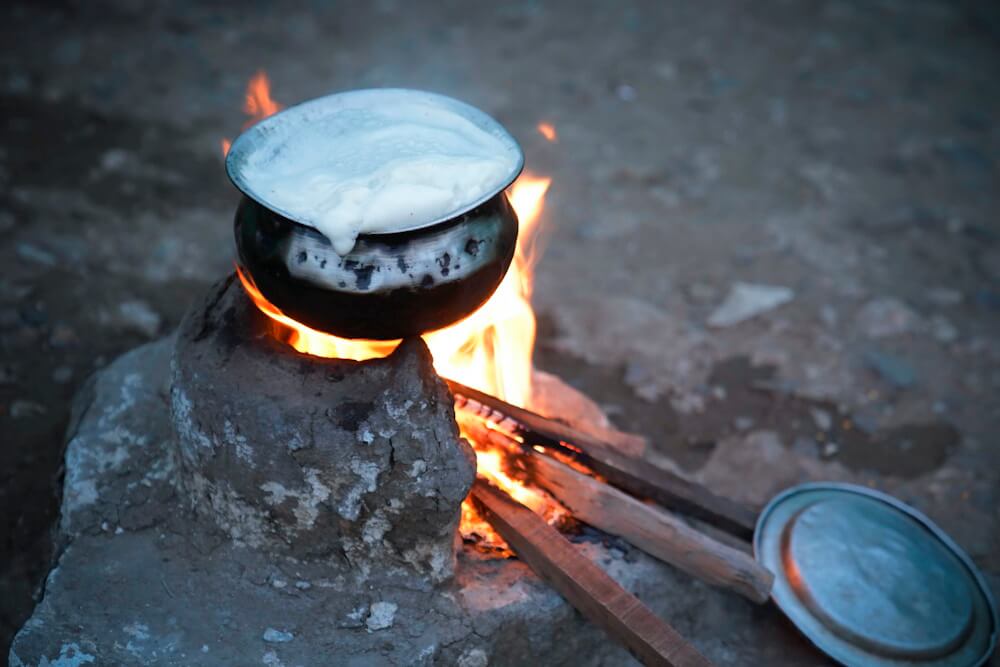
Photo: Sudharak Olwe
Barriers in transitioning to cleaner fuel
Despite the benefits, households that still rely on chulhas to cook food and heat water highlight the persistent barriers in adopting cleaner fuels. The data from the Ministry of Petroleum and Natural Gas in response to a Parliamentary question shows that due to PMUY, the per capita consumption of LPG, measured as refills of 14.2-kg cylinders in a year, increased from 3.01 in 2019-20 to 3.71 refills in 2022-23.
However, if a household uses, on average, one cylinder per month, this accounts for merely one-fourth of their annual requirement. Why are households not using more LPG? Several studies, field evidence and ground experiences of organisations have shown that while subsidies under the PMUY have played a crucial role in increasing the use of LPG, many factors ranging from socio-cultural norms to systemic gaps still act as barriers against its sustained use.
A 2023 study[8] conducted by the US Agency for International Development (USAID) along with the Council on Energy, Environment and Water (CEEW) and Asar Social Impact Advisors* highlighted some of the crucial barriers. The study identifies the role of demand-side challenges in transitioning towards cleaner cooking alternatives in poor households. One of these is the distinction between notified and non-notified slums. The data from the surveyed sites in Delhi such as Lohar Basti, Sansi Camp, Khichripur, Kanchan Kunj and JJ Colony suggests that while households in notified slums had shifted to LPG to a certain extent, those in non-notified slums continued to primarily use biomass fuels for cooking.
Another key barrier identified was the influence of gendered social norms and perceptions on the household’s decision on the choice of cooking fuel. Many households continue to use biomass due to the lack of awareness about Household Air Pollution (HAP) and the belief that chulha smoke is merely a temporary discomfort without long-term health consequences. Women, who participated in the study, shared how they are impervious to any adverse health impacts from HAP since they work hard all day long in the sun, which prevents any diseases.
The perceptions also include myths such as ‘food cooked on chulhas is healthier and tastier.’ As a woman from a basti in Delhi said, “Rotis made on an earthen stove taste completely different from rotis cooked on gas. Roti tastes sweeter when cooked on a chulha.” The study also highlighted that despite bearing a disproportionate burden and health risk, women seldom get a say in the choice of fuel due to prevailing gender norms in which the household budget and consumption decisions rest with the men of the family.
Besides these, there are several systemic barriers that the study identified including documentation challenges to apply for LPG connection, the absence of doorstep delivery of cylinders in non-notified bastis, poor grievance redressal in people’s access to and sustained use of LPG. A woman in a non-notified basti in Delhi shared that “there are no house numbers as they are non-notified. Therefore, it is difficult to get the connection” while another narrated how she was unable to get PMUY since she did not have an address proof of Delhi as her Aadhaar card was from Rajasthan, her home state.
Across the country, evidence has shown that in many households with LPG, there is a tendency to stack firewood for heating water or if the family runs out of money to buy refill cylinders. While biomass is easily accessible in rural areas, in urban slums, many families buy firewood at a small cost that they see as a lighter burden compared to the cost of buying a cylinder.[10]
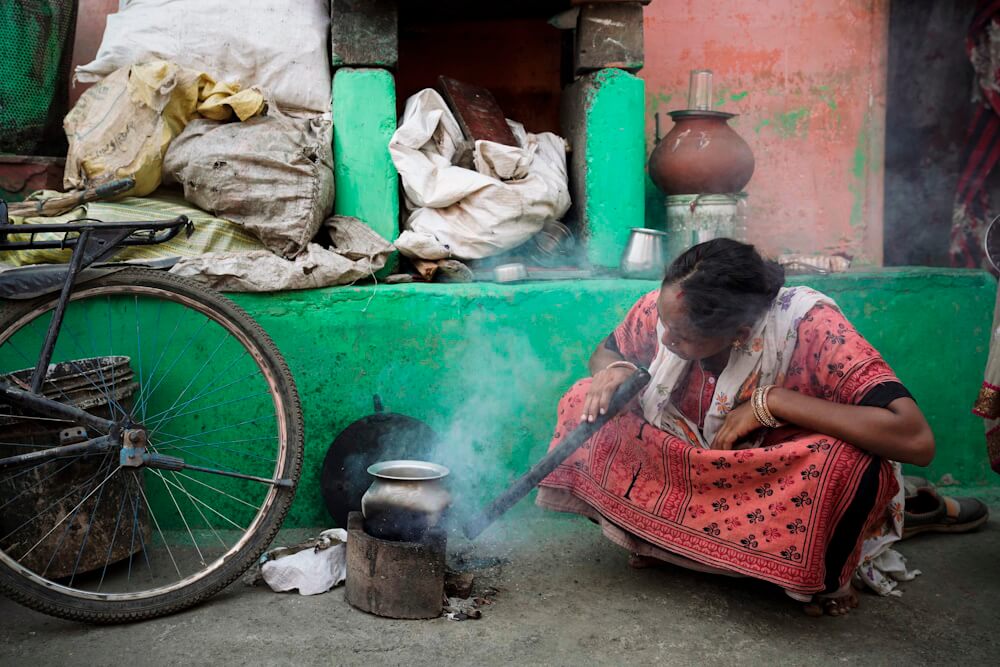
Photo: Sudharak Olwe
Health impact of chulhas on women
The sustained use of chulhas is a big contributor to Household Air Pollution which exposes women, who often spend long periods near these traditional stoves, to heightened health risks. The smoke and Particulate Matter emitted from inefficient stoves can cause mild to severe health issues.[11] Women struggle with watery eyes and frequent bouts of cough and nausea while prolonged exposure is responsible for severe conditions such as chronic bronchitis, asthma and chronic obstructive pulmonary disease (COPD).[12]
Women are also at a heightened risk of experiencing adverse pregnancy outcomes if they continue using chulhas during pregnancy.[13] In slums, cramped and poorly ventilated living spaces worsen the impact of smoke on women’s health as there is a higher exposure to Particulate Matter compared to rural households where chulhas are set up outside the house in open spaces.
In a city like Delhi where ambient air quality also reaches dangerously high levels many times a year, women cooking on biomass face the double burden of air pollution outside as well as inside their homes.[14] Collecting or buying firewood and spending a huge amount of time and energy in cooking on the chulha also poses a huge opportunity cost for young girls and women.
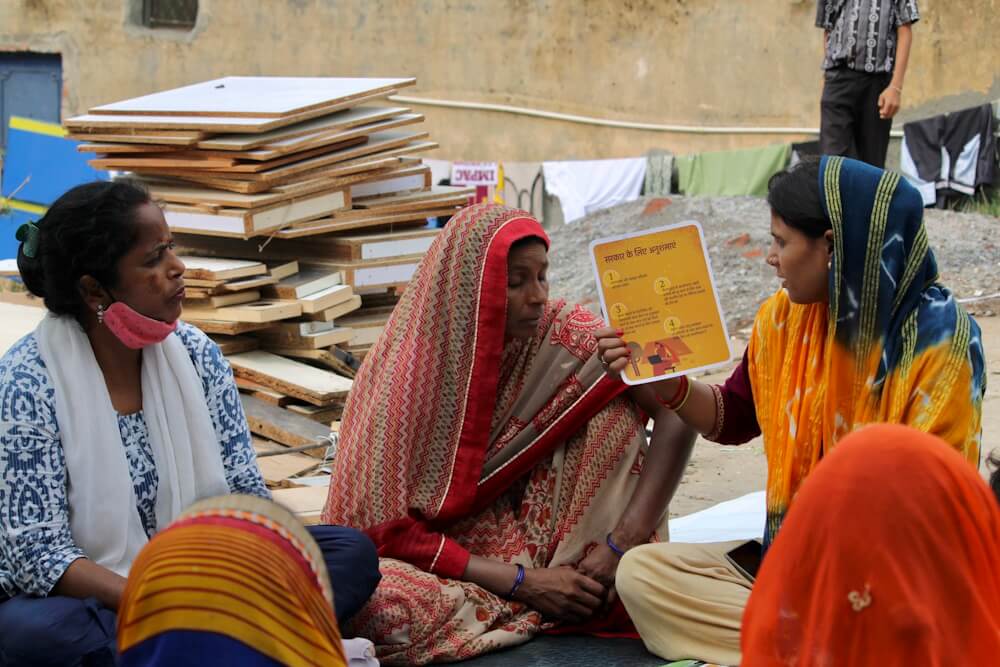
Photo: Asar
Need for a holistic approach
Universal access to clean cooking is an integral part of transitioning to a just net-zero-emissions energy system.[15] However, evidence suggests that transitioning towards widespread adoption of LPG requires a holistic and multifaceted approach that goes beyond subsidy provision. Such an approach needs to be embedded in socio-cultural realities of women on the margins and must work around a complex web of interconnected yet distinct issues such as poor economic background, lack of education, vulnerable occupational status, and resultant challenges to health and well-being.
One of the most important strategies is to address the issue of poor awareness about the health impact of chulha usage. Many women are aware of only discomfort but are often unaware of the severe health risks posed by constant exposure to it. Similarly, a lot of work needs to be done in changing social and cultural beliefs around the usage of cooking fuels. We need targeted awareness and behaviour-change campaigns, innovative ways of engaging with local communities and building grassroots leadership of women on this issue.
Engaging men of households is equally important given the significant role they play. Our experience suggests that while the majority of women are willing to fully switch to LPG, they struggle to convince family members to earmark a monthly amount for it. Thus, supporting women’s incomes and livelihoods can be seen as a long-term strategy in getting their buy-in and long-term commitment towards clean cooking fuel.
Similarly, in informal settlements in Delhi, people have migrated from various parts of the country and lack the necessary documents to be eligible for the Ujjwala scheme. It is important to work on basic entitlements and documentation, especially in non-notified settlements in Delhi and across the country. An example of such an intervention is by NGO Centre for Advocacy and Research (CFAR) which includes setting up a single-window system where residents living in informal settlements can access a variety of government services under a single roof.
Similarly, Rama, a former ASHA worker who works on the issue of clean cooking in Bhalaswa, a slum settlement of waste pickers around one of Delhi’s biggest dumping grounds, demonstrates grassroots awareness and access to basic services can improve access to cleaner fuels among the most vulnerable groups.[16] In addition to this, effective grievance redressal mechanisms are essential to address operational challenges and enhance consumer confidence in the LPG supply chain. This can be done by the government with the support of gas agencies and local NGOs.
The political commitment towards universal access to clean cooking fuel requires a comprehensive approach that not only addresses the financial and logistical barriers but delves into the intricate fabric of social norms, awareness, and community empowerment. The experiences of women in urban slums, based on the Delhi study, underline the urgent need for sustained efforts to bridge the gap between policy intent and ground-level impact on the issue. Access to clean cooking by the poorest households is necessary to ensure that India’s energy transition is just and the burden does not fall on the shoulders of the most vulnerable.
*The writers are associated with Asar Social Impact Advisors where Ankita Bhatkhande is Head of Communications (Gender and Climate) and Saumya Shrivastava is Program & Research Lead (Gender and Climate). Bhatkhande is a former journalist with experience in covering urban issues and Shrivastava is a policy researcher whose work focusses on gender equity and social inclusion.
Cover photo: Sudharak Olwe

